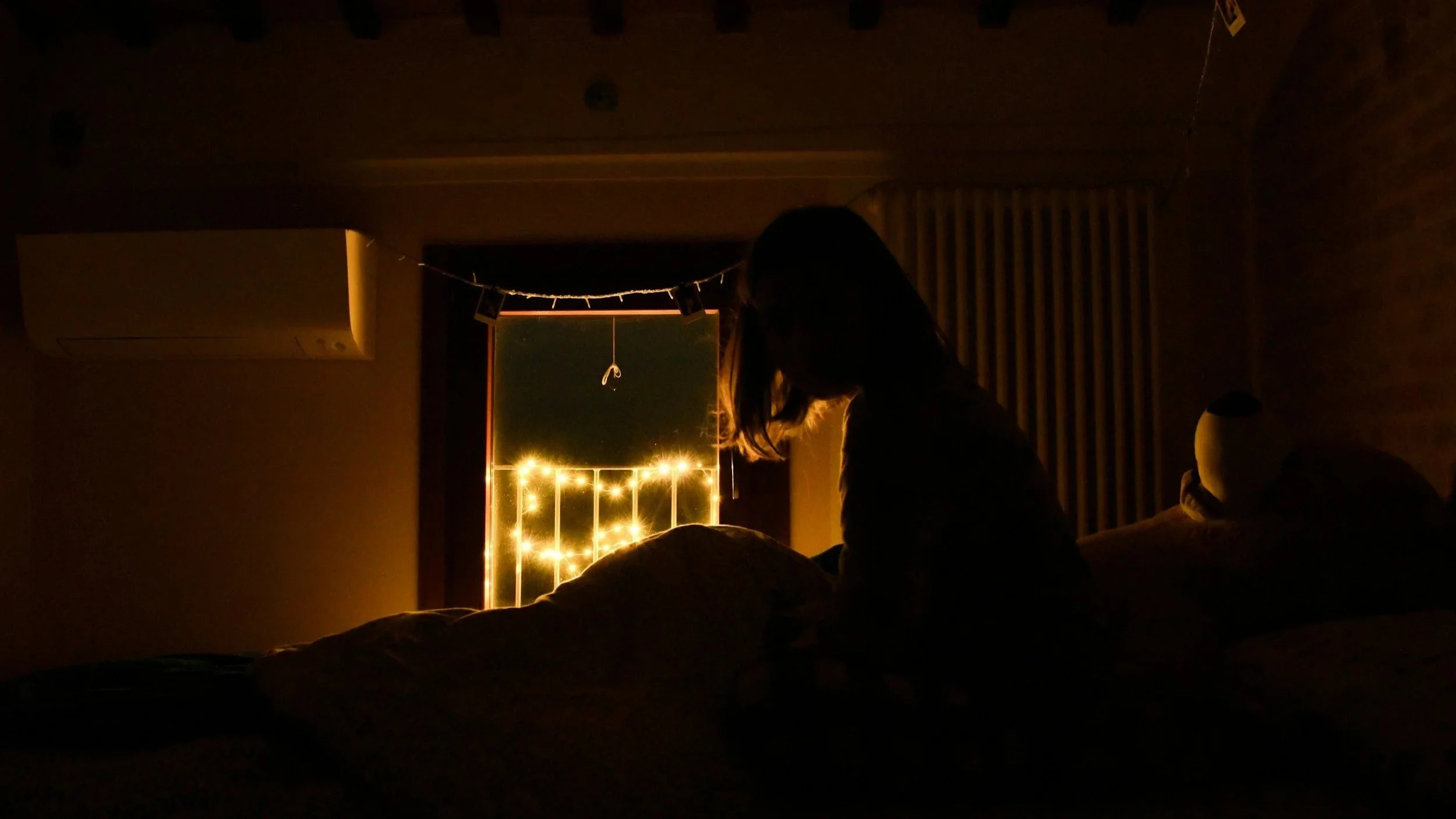🏚️Inside the Haunted House of OCD: The Bedroom🛏️
The bedroom is supposed to be a place of peace — where the day ends, the lights go out, and the body finally rests.
But for someone with OCD, the quiet can be the scariest part. When the house settles and the air goes still, every creak and hum feels louder — and so do the thoughts.
When the distractions fade, OCD starts its nighttime shift. The room meant for rest becomes a stage for contamination fears, relationship doubts, intrusive thoughts, and endless replaying of potential mistakes made.
For many, this makes the bedroom the most haunted room in the house.
When Comfort Becomes Contaminated
The bed — sacred, safe, intimate — can suddenly feel off-limits.
For some, the fear is germs or contamination:
“Did I shower enough before getting in bed?”
“What if I brought in germs from outside?”
“What if someone comes into my room, touches something, and I can’t stop thinking about it being contaminated?”
“What if my bed becomes dirty and I can never make it clean again?”
OCD can turn a place meant for comfort into a zone of strict boundaries and invisible rules.
Outside clothes can’t touch the bed.
Contaminants from the bathroom or other rooms feel like they’ve spread everywhere — to the bedding, the pillows, and even the air.
When I was younger, I loved to read and would often bring home books from my school’s library. I could spend hours lost in a good story. But for a long time, one of my biggest fears was that if I read library books on my bed, they would contaminate it — and I’d never be able to feel like my bed was clean again.
I feel sad for little me, wanting so badly to read while lying on my bed, surrounded by my favorite stuffed animals and comfort. Instead, I spent hours sitting or lying on the hard floor whenever I wanted to read, do homework, or touch anything that came from outside my home.
That’s how OCD works: it doesn’t just steal time, it steals comfort. It promises relief through control but only feeds the cycle of fear.
When Love Turns Into Doubt
For others, the fear isn’t about germs — it’s about uncertainty related to their relationship, sexual orientation, or intrusive thoughts filled with guilt, discomfort, and doubt.
OCD can turn the time before bed into an interrogation — a relentless quest for certainty.
“What if my partner is thinking about someone else?”
“What if I’m thinking about someone else?”
“What if they liked their ex more than me?”
“What if we sometimes don’t have sex and that indicates something bad?”
“What if I never feel the ‘right’ kind of love?”
“What if my thoughts mean I’m with the wrong person?”
Even memories aren’t safe — OCD replays them like surveillance footage, demanding proof of honesty, loyalty, and certainty.
The bed becomes a testing ground for connection and morality, where love is measured, questioned, and never allowed to simply be.
When Sleep Doesn’t Feel Safe
Then there are the nights when rest itself feels risky.
“What if I stop breathing when I fall asleep?”
“What if my heart stops?”
“What if I lose control when I’m asleep and harm myself or someone I love?”
“What if I made a mistake today and something terrible happens when I fall asleep because of it?”
Rumination takes over easily here. The mind replays the day on a loop — things said, actions taken, details missed.
OCD doesn’t just question safety; it questions memory, morality, and identity.
It’s a cruel paradox — exhaustion meets hypervigilance. The more the person tries to relax, the more the mind sounds the alarm.
To someone else, it might look like anxiety or insomnia. But to someone living with OCD, it feels like survival.
When Even Dreams Aren’t Safe
OCD doesn’t always stop when you fall asleep. It can invade dreams — turning them into vivid, unwanted scenes that feel disturbingly real.
People may wake up panicked, guilty, or convinced the dream means something about who they are.
False memory fears can start here too: “What if that dream actually happened?” “What if it means I secretly want to do something awful?”
Even unconsciousness isn’t guaranteed peace when your brain is wired to doubt.
Reclaiming the Room
Treatment doesn’t mean fighting the thoughts. It means changing the relationship with them.
Through Exposure and Response Prevention (ERP), clients gradually face the fears that keep them up at night — learning to accept uncertainty and to return to their values again and again.
Over time, the brain learns that safety doesn’t come from certainty — it comes from allowing imperfection.
The haunting in the bedroom isn’t really about germs, love, or sleep.
It’s about OCD’s endless demand for reassurance — that you’re clean enough, good enough, safe enough, certain enough.
But peace doesn’t come from checking, washing, or proving.
It comes from turning out the light, letting the doubt stay, and realizing you can still rest anyway.
It may take practice, but relief from OCD is possible.
Stay tuned for next week — when we open the front door, where leaving home feels like the ultimate act of courage. 🚪






